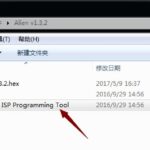Modern Nissan vehicles rely heavily on the Engine Control Module (ECM) to manage critical functions like air-fuel ratio, ignition timing, and emissions. Over time, the ECM’s programming may need updating or the unit itself may require replacement or repair. This comprehensive guide will cover everything you need to know about Nissan Reprogram Ecm procedures, including costs, symptoms of a failing ECM, and replacement instructions.
Why Reprogram a Nissan ECM?
While a car engine is built for durability, wear and tear are inevitable. Components loosen, tolerances change, and overall performance can degrade. Reprogramming the ECM can compensate for these changes, optimizing engine performance and fuel efficiency even with aging parts. It can also address issues arising from software glitches or updates to emissions standards.
Reprogramming essentially updates the ECM’s software with the latest calibrations from Nissan, allowing it to adjust fuel delivery, ignition timing, and other parameters for optimal performance in the vehicle’s current condition.
Nissan Reprogram ECM Cost
The cost to reprogram a Nissan ECM varies depending on the labor rates of the dealership or repair shop and your location. Expect to pay anywhere from $100 to $200 for the service. Contacting multiple dealerships or independent shops for quotes is recommended to find the most competitive price.
 Nissan ECM
Nissan ECM
Symptoms of a Bad Nissan ECM
A malfunctioning ECM can manifest in various ways. Recognizing these symptoms can help you diagnose a potential ECM issue:
Engine Stalling or Stuttering: A faulty ECM can disrupt the air-fuel mixture, leading to engine stalling or stuttering, especially at idle. While a dirty air filter can also cause this, a persistent problem warrants ECM inspection.
Engine Shutting Off Unexpectedly: A sudden engine shutdown often indicates a serious issue with the fuel-air mixture, potentially stemming from a bad ECM. This requires immediate attention.
Decreased Fuel Economy: A noticeable drop in gas mileage can signal an incorrect air-fuel ratio controlled by the ECM. Both a “rich” (too much fuel) and “lean” (too much air) condition can negatively impact fuel efficiency.
Difficulty Starting the Engine: Problems starting the engine can also be attributed to an improper air-fuel mixture caused by a faulty ECM. This can progressively worsen over time.
Check Engine Light Illumination: While numerous issues can trigger the check engine light, a failing ECM, TCM (Transmission Control Module), or PCM (Powertrain Control Module) are among the more serious possibilities. Use an OBD-II scanner to retrieve the specific trouble codes for accurate diagnosis.
Can a Nissan ECM be Repaired?
Yes, a Nissan ECM can often be repaired. However, ECM repair is a complex process requiring specialized knowledge and equipment. It involves intricate electronic work and is best left to experienced technicians at reputable repair centers. Repairing an ECM is typically more cost-effective than purchasing a new one.
Replacing a Nissan ECM
Replacing an ECM is a moderately challenging task that can be done with basic tools and careful attention to detail:
-
Disconnect the Battery: Open the hood and disconnect the negative battery terminal using a socket wrench.
-
Locate the ECM: The ECM is typically located under the hood, near the firewall, or sometimes under the dashboard. Consult your owner’s manual for the precise location.
-
Disconnect Electrical Connectors: Carefully detach all electrical connectors from the ECM. Note their positions for proper reconnection.
-
Remove Mounting Bolts: Unscrew the bolts securing the ECM to its mounting bracket.
-
Install the New ECM: Position the new ECM and secure it with the mounting bolts.
-
Reconnect Electrical Connectors: Reconnect all electrical connectors in their original positions.
-
Reconnect the Battery: Attach the negative battery terminal.
-
Start the Engine: Start the vehicle and let it idle for a few minutes to ensure the new ECM is functioning correctly.
Conclusion
A properly functioning ECM is vital for optimal performance and drivability in your Nissan. Recognizing the symptoms of a bad ECM and understanding the options for reprogramming, repair, or replacement can help you maintain your vehicle’s reliability and efficiency. While DIY replacement is possible, seeking professional assistance is recommended for complex issues or if you lack experience working with automotive electronics. Remember to always use quality replacement parts to avoid further complications.
